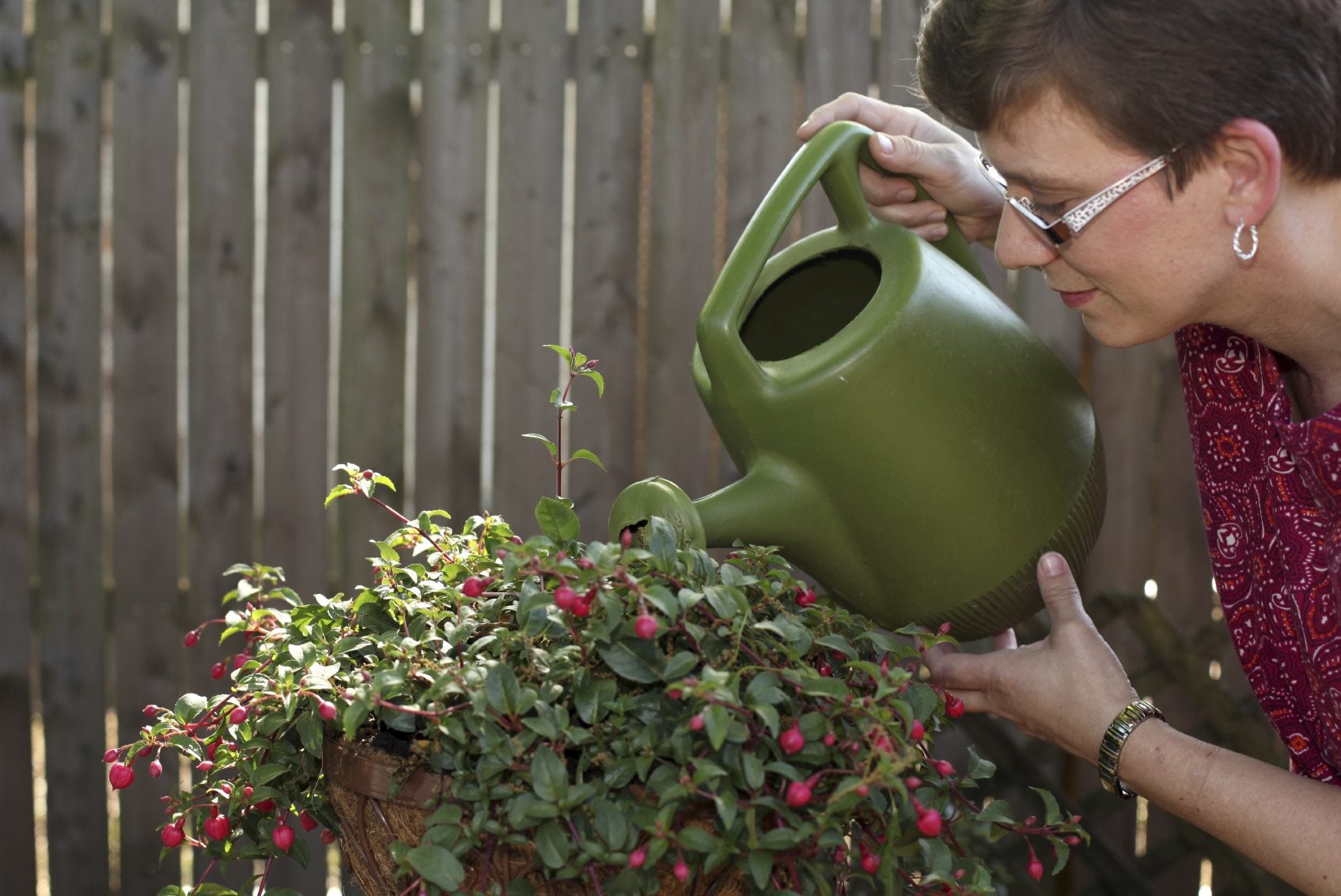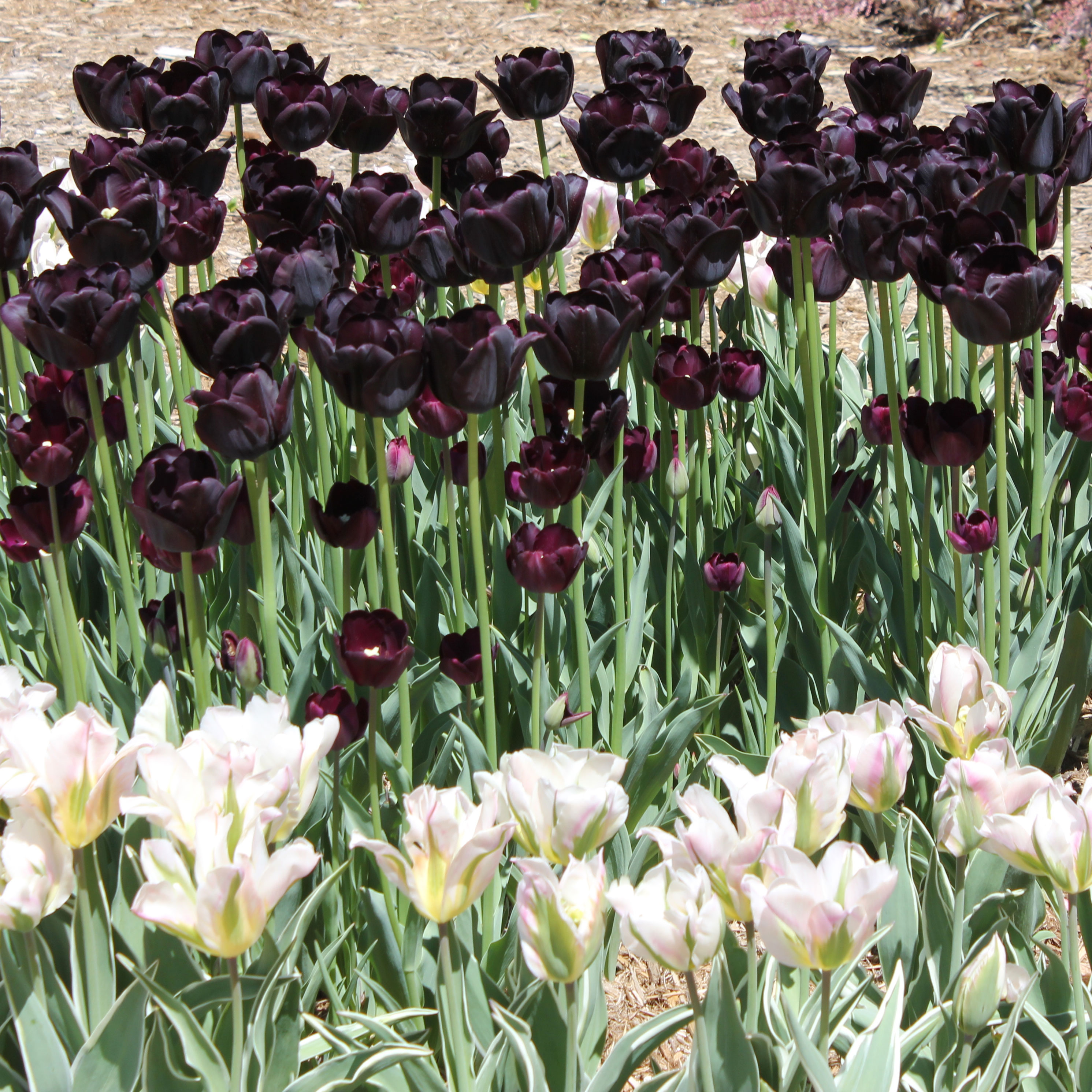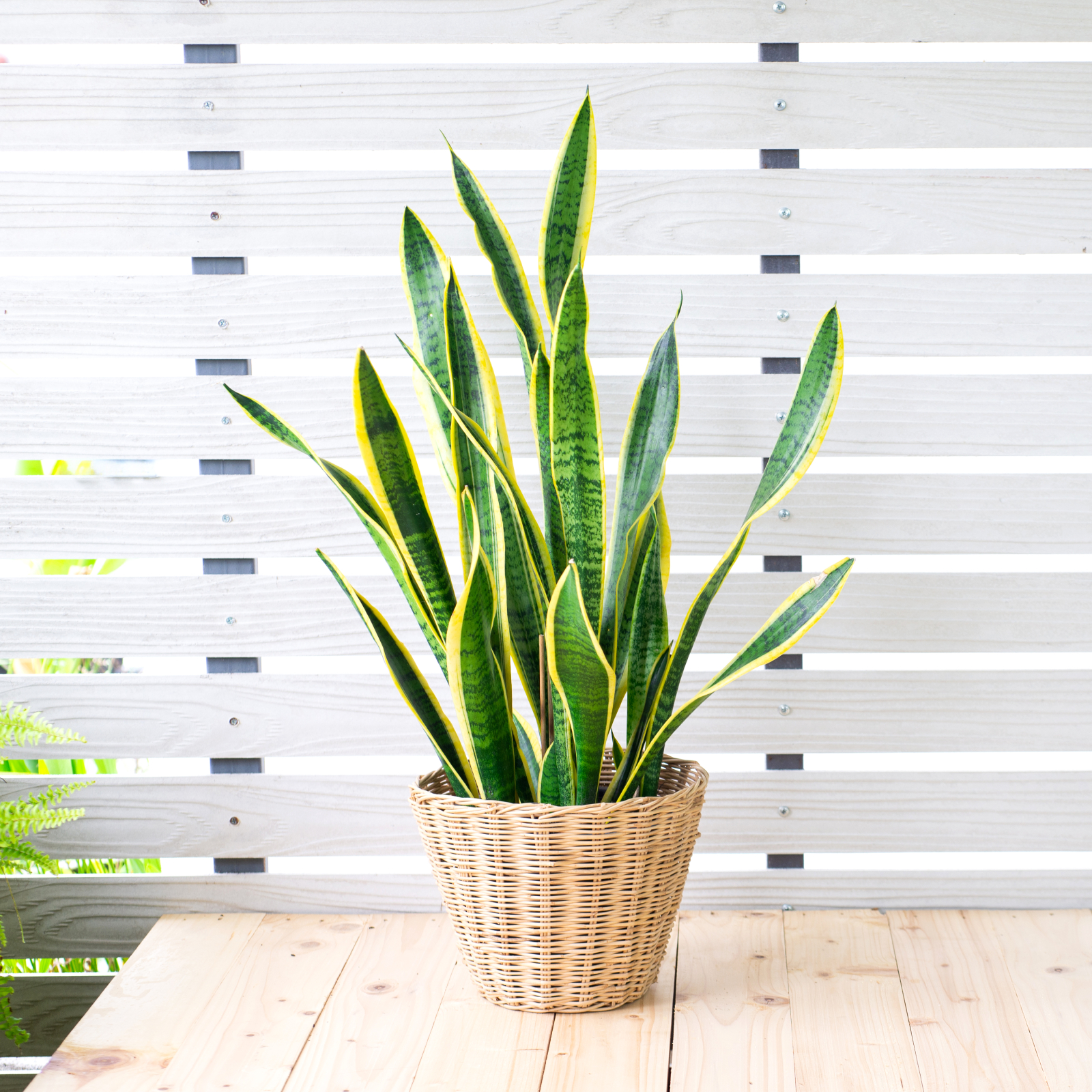Fuchsia Water Requirements: Tips On Watering Fuchsia Plants


Fuchsia plants are one of the most engaging potted flowering plants available. Care of these plants is fairly easy, but watering fuchsia plants is crucial to producing big leafy plants with plenty of dangling blooms. Since most are grown as hanging baskets, the root zone is more exposed and tends to dry out quickly. What are fuchsia water requirements though? Read on for tips on how to water fuchsia and save these tender plants for another season.
Fuchsia Water Requirements
One of the easiest things to do is either over or underwater plants. Moisture meters can be effective in determining how much water is retained in the soil, but they don't help with the when and how much regarding the plant’s water needs. Watering a fuchsia plant is actually quite easy. They need regular moisture but can't be standing in boggy water. Your in-ground plants will be more tolerant of a dry day or two while the potted plants need a bit more moisture. Most fuchsias aren't terribly hardy and are used as annuals but their rapid growth even for one short season makes them standouts for the landscape. Consistent moisture will keep the plant happy and flowering all season. Fuchsias cannot tolerate having wet roots. Well-draining potting soil and good drainage holes are important for potted plants. Plants in-ground should also have freely draining soil which is loose and fertile. Watering fuchsia plants correctly may require the use of a moisture meter or what I call the "knuckle test." Simply push your index finger into the soil around the plant. If it is moist to the second knuckle, you don't need to water. If the soil is dry, however, it is time to water.
How to Water Fuchsia Plants
Fuchsia plants in containers should be watered until the water leaches out of the drainage holes. This is to help pull excess salts from fertilizing out of the water. You may want to consider using rain or distilled water if your municipality has fluoride in the water. Plants are sensitive to some chemicals and can become sick from common drinking water. Plants in-ground should be watered until the soil is uniformly moist around the root zone. The root zone is generally 3 to 6 inches (8-15 cm.) out from the main stem of a mature plant. You don't want standing puddles of water so wait a minute before adding more and make sure the moisture is sinking into the root area. Overwintering fuchsia plants requires a different approach. You can save tender fuchsia even in northern climates by bringing it indoors. Bring plants in before the first frost and place them in a cool, dry location such as the basement or garage. Watering a fuchsia plant that is being overwintered is important, but the plant's needs are minimal in winter. As a rule, watering twice during the dormant period is sufficient. Some growers recommend watering at a major holiday in the winter so you don't forget. If your plant is near a fan or heater, it will need a bit more moisture, as this will dry it out quickly. In spring, resume more consistent watering and gradually reintroduce the plant to the outdoors. In no time at all, you will have your beautiful flowering fuchsia in full glory to adorn your landscape.
Gardening tips, videos, info and more delivered right to your inbox!
Sign up for the Gardening Know How newsletter today and receive a free copy of our e-book "How to Grow Delicious Tomatoes".

Bonnie Grant is a professional landscaper with a Certification in Urban Gardening. She has been gardening and writing for 15 years. A former professional chef, she has a passion for edible landscaping.
-
 Moody Blooms For Spring: 8 Types Of Black Flowers To Add Drama To Spring Displays
Moody Blooms For Spring: 8 Types Of Black Flowers To Add Drama To Spring DisplaysFrom midnight burgundies to inky violets, several types of black flowers can enrich and embolden a spring display. Try these brooding bloomers for a moody garden
By Tonya Barnett
-
 Can Snake Plants Live Outside? Everything You Need To Know For Snake Plants Al Fresco
Can Snake Plants Live Outside? Everything You Need To Know For Snake Plants Al FrescoSnake plants can live outside given the right conditions, but be careful that they don't take over! Learn the best way to use snake plants in your landscape.
By Mary Ellen Ellis